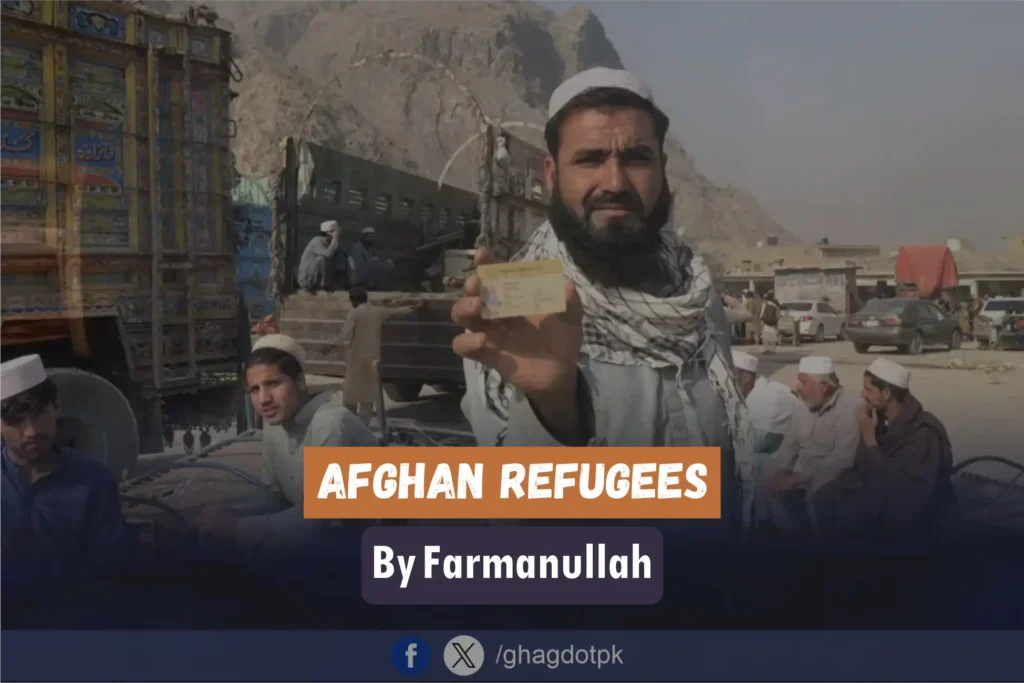By Farman Ullah
The government of Pakistan is moving ahead with its plan to send Afghan citizens who hold Afghan Citizenship Cards back to Afghanistan. The government had previously set March 31 as the deadline for refugees to leave voluntarily, warning that those who remained after this date would be deported. Now, Pakistan is making good on this warning, ignoring calls from humanitarian organizations like the UN High Commissioner for Refugees. The UN had asked for more time and a more compassionate approach towards Afghan refugees, especially after the Eid holidays. However, the government has decided to proceed with its plan, reminding critics that Pakistan is not legally obligated by the Refugee Convention, and that any help provided to Afghan refugees has been done out of kindness.
This decision is within the government’s rights, and there is little that other countries or organizations can do to change it. However, the way this repatriation is carried out matters. Afghan refugees, many of whom have lived in Pakistan for decades, should be treated with respect and dignity during their deportation. These individuals are already in a vulnerable position, and there is a risk they may be exploited by both state officials and civilians. The authorities must ensure the safety and well-being of the deportees, giving them the chance to settle their affairs before they leave.
Many Afghan refugees arrived in Pakistan with nothing, and over the years, some have managed to rebuild parts of their lives. Forcing them to return to Afghanistan, a country they fled because of conflict, should not feel like a punishment for being Afghan. If the Pakistani government frames the deportation as a return to “home,” it should ensure that the refugees feel welcomed and supported upon their return. They must not be made to feel like outsiders or be treated harshly.
The government must be firm in enforcing its policy, but should also avoid cruelty. Many Afghan refugees have contributed to the economy and society in Pakistan over the years, and their return should be done in a way that respects their human dignity. This would be the moral thing to do and would help avoid unnecessary suffering. The deportation process should not create further hardships for people who have already been through a lot.
Reports and surveys from various humanitarian organizations show that Afghan refugees in Pakistan have integrated into local communities. They have started businesses, worked in agriculture, and contributed to the country’s economy. Despite this, the Pakistani government has been increasingly critical of their long presence, with some citizens viewing them with suspicion. The government sees the continued presence of refugees as a growing problem that needs to be addressed, even though many of these individuals have built lives and families in Pakistan.
Humanitarian organizations have warned that Afghanistan, still struggling with conflict and instability, may not be able to provide adequate support for such a large number of returnees. The situation in Afghanistan remains dangerous, and returning refugees could face even more challenges there. Many of these individuals are traumatized by their experiences and may not have the resources to rebuild their lives in a war-torn country.
Given this situation, Pakistan needs to handle the deportation process with care. Although the country is within its rights to enforce its policies, it should do so in a way that respects the human rights of refugees. The deportation should be carried out in a way that prevents exploitation and mistreatment. By doing so, Pakistan would not only be upholding moral values but also contributing to the long-term well-being of both the refugees and the wider region.
Pakistan’s decision to repatriate Afghan refugees is a sensitive and difficult issue. While the government has the right to enforce its policies, it must do so in a way that is compassionate and respectful. The deportation process should focus on protecting the rights of the refugees, ensuring their safety, and giving them the support they need. International organizations and governments should continue to encourage Pakistan to take a more humane approach and provide adequate support for Afghan refugees.
(April 10th, 2025)






